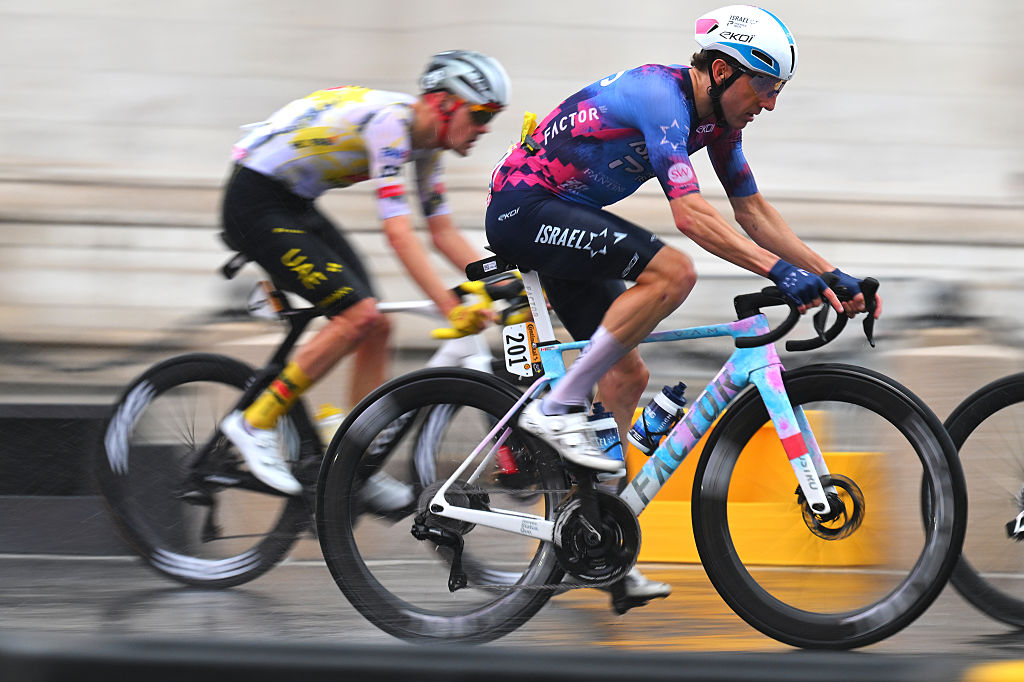Roche: we've done worse in this year's Vuelta
Ag2r rider previews final summit finish of Bola del Mundo climb
The latest race content, interviews, features, reviews and expert buying guides, direct to your inbox!
You are now subscribed
Your newsletter sign-up was successful
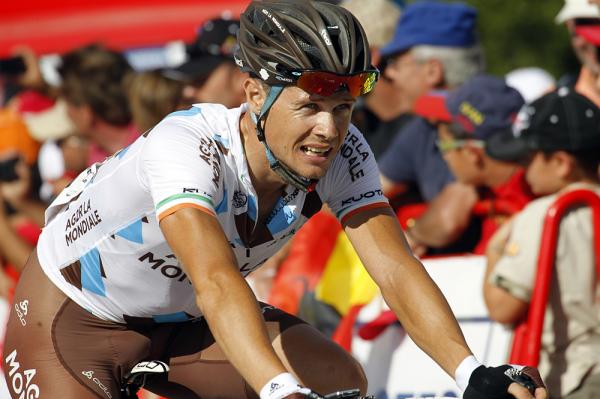
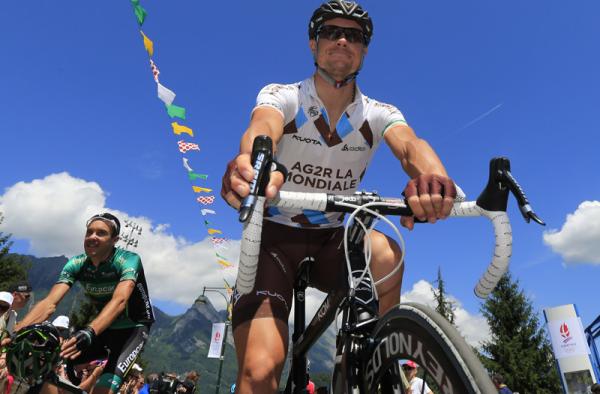
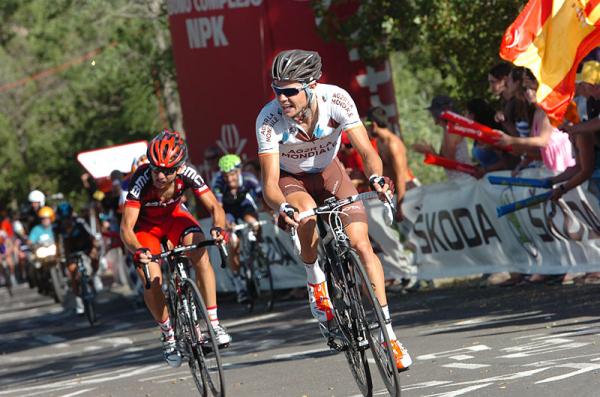
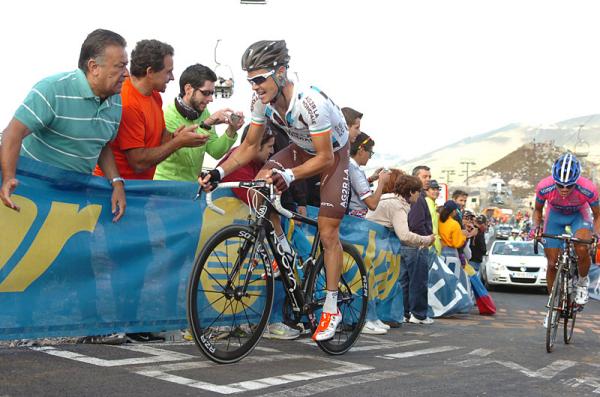
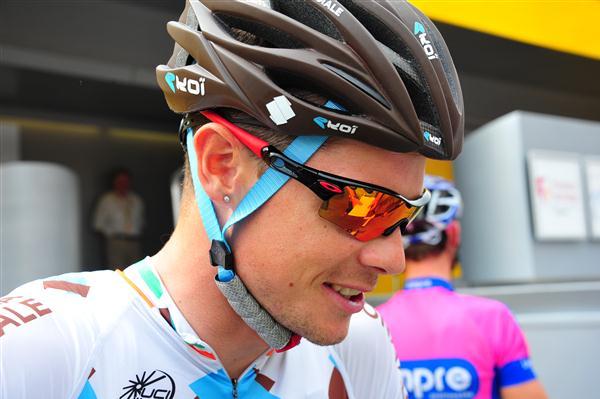
On Saturday the Vuelta a España faces its final summit finish of the 2012 race, the Bola de Mundo, a climb which rises to 2,247 metres above sea level high in the Sierra de Madrid. It is the last opportunity for Joaquim Rodriguez (Katusha) and Alejandro Valverde (Movistar) to re-turn the tables on Alberto Contador (SaxoBank-Tinkoof), or for the Madrileño to open up an even bigger gap overall.
The last three kilometres of the climb , which are cement not tarmac, are one unusual feature of the stage. Amongst the peloton, Ag2R rider Nicolas Roche, the team's best-placed rider on GC in 12th spot, knows the Bola de Mundo from 2010, the only previous occasion on which the Vuelta has tackled the entire 11.4 kilometre climb and he believes it is "not as tough as the Cuitu Negru climb that we did last week."
"The Navacerrada climb [that forms the first segment of the Bola] is not as tough as Pajares, the first part of the Cuitu Negru, either or as long."
In 2010, the last time the race tackled the Bola del Mundo, Roche held onto seventh place overall with a sixth place on the stage, 4:43 down.
"It went pretty well, although to be honest you're not really thinking that much by that point in the race," Roche said.
"I had a good day so I just concentrated on [Frank] Schleck [fourth on the stage] and [Joaquim] Rodriguez [third], and then [Xavi] Tondo [fifth]. I was pleased cos I dropped Tondo, who was only a few seconds ahead of me overall, but then he got back up to me in the last 100 metres. "
"I'm not one much for thinking about it and saving energy, I go hard until I can and then I ease back. It's a strong point but sometimes a weakness."
The latest race content, interviews, features, reviews and expert buying guides, direct to your inbox!
According to Roche, by that stage in the game, in a Grand Tour's third week, most riders are thinking more about their overall position and holding onto what they've got, rather than digging any deeper. However, there are always exceptions, as it was in the Vuelta 2010.
"[Ezequiel] Mosquera had attacked just before the cement part and we weren't quite one by one going into the final part, but two by two."
"At that stage, there was still five of us in less than a minute 30 margin, and this time it's very different. In front of me it's a minute, behind me it's a minute, so it's just different. Last time, there was eight seconds to go one place, 20 seconds
to go another, and behind me there was Tom Danielson [and Carlos Sastre - Ed.] It was completely different."
His gearing though will be the same as at Cuitu Negru, 36x28. But other than that there'll be no special equipment, or tactics.
"It's so close to the finish, my oxygen goes into my legs, not my brains," he joked. "I just go and point at the finish, we're not Formula One where we'd have to calculate how much effect a change of tyres has. It's concrete blocks, not rough surface so you don't have to worry about that too much, unless it's raining, which will really alter things."
For himself, his personal objective will be to move up a place on gc (he's currently lying twelfth) and "with a good top ten place, I'd be satisfied. It'd be nice to go out on a high note."
"I've had two very difficult days in the high mountains - not because I was sick, just because I was human. I have good days and bad days."
"Some of the guys like to give themselves an excuse because they've got a runny nose, but I think all 178 starters today will have a sore arse, bad back or won't have slept well or coughing. It's part of a Grand Tour, the legs weren't going and that was it."
His best day in the Vuelta? "Quite a few. The climbs in the first week were good, I did well in the short and steep climbs early on, and it's just been in the high mountains where I'm not such a good climber as guys like [Robert] Gesink (Rabobank) and I was bound to lose time."
After the Vuelta, Roche will do the team time trial event at the worlds and the worlds road-race.
Alasdair Fotheringham has been reporting on cycling since 1991. He has covered every Tour de France since 1992 bar one, as well as numerous other bike races of all shapes and sizes, ranging from the Olympic Games in 2008 to the now sadly defunct Subida a Urkiola hill climb in Spain. As well as working for Cyclingnews, he has also written for The Independent, The Guardian, ProCycling, The Express and Reuters.

